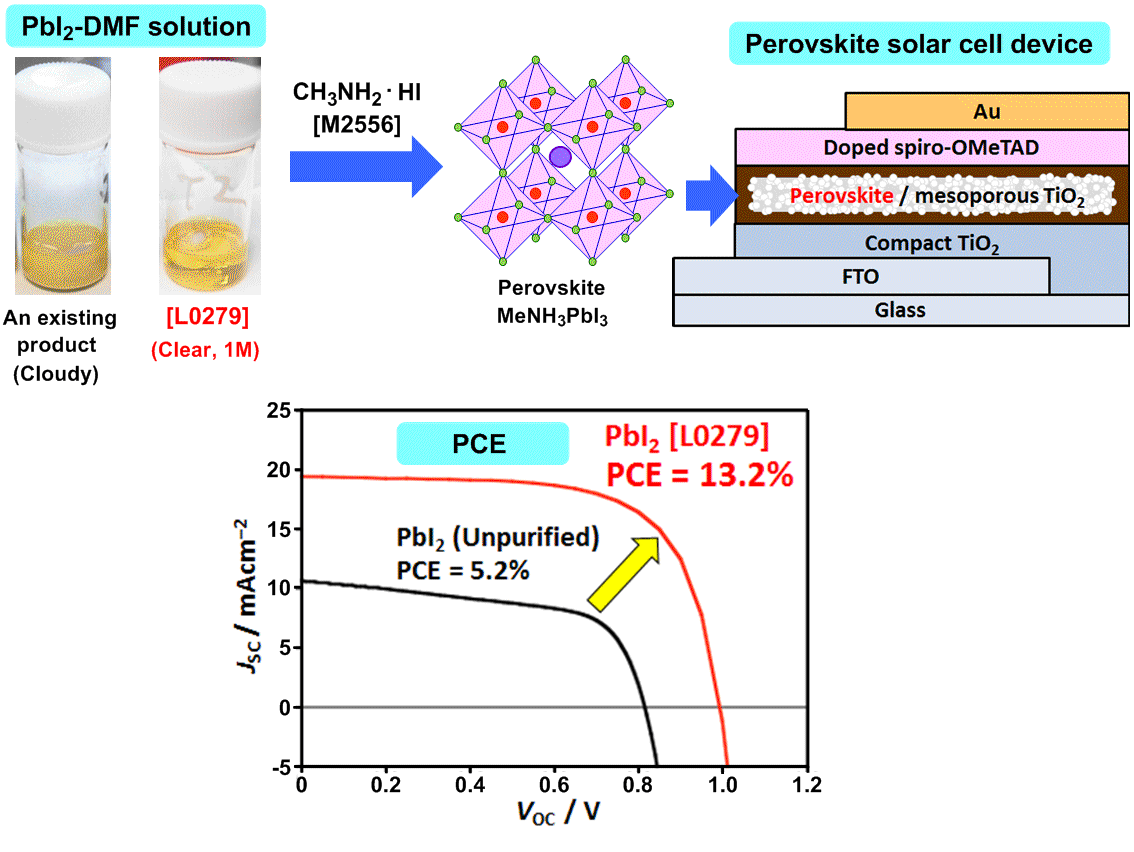A perovskite solar cell, that was first reported by Miyasaka
et al. in 2009, has recently received much attention.
1) The organic-inorganic perovskite, RNH
3PbX
3 (X = Cl, Br, I), can function as a light absorption layer. Power conversion efficiency (PCE) of the perovskite solar cell is getting >15%, better than those of OPV and DSSC.
2,3) A device of the perovskite solar cell is solution-processible enabling fabrication at low cost. The organic-inorganic perovskites RNH
3PbX
3 are easily prepared from HX salts of organic amines and lead halides. A modification of the halide X in the (MeNH
3)PbX
3 can control the range of absorption wavelength. The perovskite compound with X = Br is useful for light absorption in shorter wavelengths and the compound with X = I is relatively useful for that in longer wavelengths. Wakamiya
et al. reported that use of highly dried
lead(II) iodide (Product No. L0279) is a key to fabricate efficient perovskite solar cell devices (PCE > 10%) with high reproducibility.
4,5)